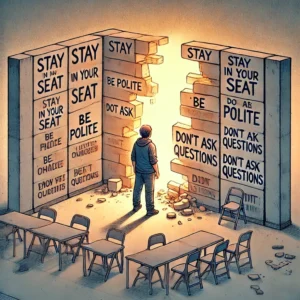In our Complaining 101 blog (http://www.mclarencoaching.com/complaining-101-how-to-stay-exactly-where-you-are) we explored the energy of complaining – how it feels to the person doing it and to the people hearing it. We talked about open-ended questions as a good way to move out of this nonproductive mindset into one of curiosity. I recommended that you look at the situation in a way that opens up more possibilities, that complaining is often done because we don’t see any action to take other than what is right on front of us.
In 102, we learn an additional fact about complaining – a complaint is often an unfulfilled request:
Wife says to husband, “It’s hot in here.” So he turns down the thermostat.
Boss says to employee, “You’re always late.” Employee hears – “You better get here on time.”
Parent says to child, “Your room is messy.” Depending on the age, the child may not get this hint, but he will be indoctrinated sooner or later.
This way of communicating is vague, indirect and unclear. When you teach people to respond to your complaint as a request, you train people to search under your words for hidden meanings. That is not clear communication because it relies on assumption and unspoken messages. Additionally, when you state a request as a complaint, it feels bad. As in the Complaining 101 article, we learned that the act of complaining feels heavy and negative. That is because complaining is inherently powerless. Complaining says, “I have no control over this situation.”
But if when you feel the urge to complain, you ask yourself, “Do I have a request I would like to make?” this places you in a more empowered position. If it is too hot in the room, rather than complain, think about what you want – a window opened? the A/C turned down? to buy a cooling system that works better? In figuring out what you want and asking for it you empower yourself to get it. In complaining, you empower nothing.
On the other side of this, when someone else states a complaint, don’t just give them something you think will make them happy; ask what they need or want. When someone says to you, “This policy is terrible and leads to confusion and overwork,” ask him “What do you think we should do about that?” or “Who can help with that?” or even, “What makes you bring this to me?” If you create agreement in your workplace or family, you could even ask, “Do you have a request?” or “Are you making a request?”
In this way, you reduce confusion and bring clarity. Make a pact with yourself – whenever you hear a complaint (from yourself or someone else) ask, “what is the request?” You will be surprised what you learn.






